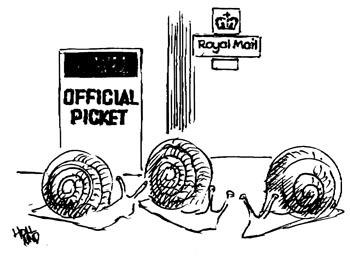Epiphenomenalism is, as 16-letter words go, not an obvious hook with which, dear reader, to draw you to this column; but let me explain; because I think I may be an epiphenomenalist.
My dictionary defines this as the doctrine that consciousness is merely a by-product of physiological processes and has no power to affect them: that we do not weep because we’re sad, but rather that we are sad because we’re weeping.
The idea is not quite as crazy as it sounds. Tony Blair did not sound passionately sincere because he was passionately sincere. He mastered the knack of delivering his lines with such passionate sincerity that he became spellbound by his own performance, and believed in it. And only last week in Blackpool the Times’s political sketchwriter, Ann Treneman, said to me, ‘I think an election may be approaching because I’ve started eating crisps.’ In the same way, one cow might observe to another, ‘I think it’s going to rain because I’m lying down.’
And I think the Conservative party may have won Britain over. The reason? David Cameron is making good speeches. The excellence of his speeches is not the cause of his new popularity. His new popularity is the cause of his good speeches. We rate them because we rate him: not the other way round.
Ever since I started attending party conferences 30 years ago I’ve been puzzled by the violence with which press and public opinion seem to swing for or against key platform performances by important politicians. One speech is declared a triumph, another a disaster; one interview is lauded as masterly, another a toe-curling flop; a self-deprecating remark from one speaker is wit; from another an embarrassing gaffe. Yet for me such speeches, interviews or remarks have rarely seemed exceptional.









Comments
Join the debate for just £1 a month
Be part of the conversation with other Spectator readers by getting your first three months for £3.
UNLOCK ACCESS Just £1 a monthAlready a subscriber? Log in